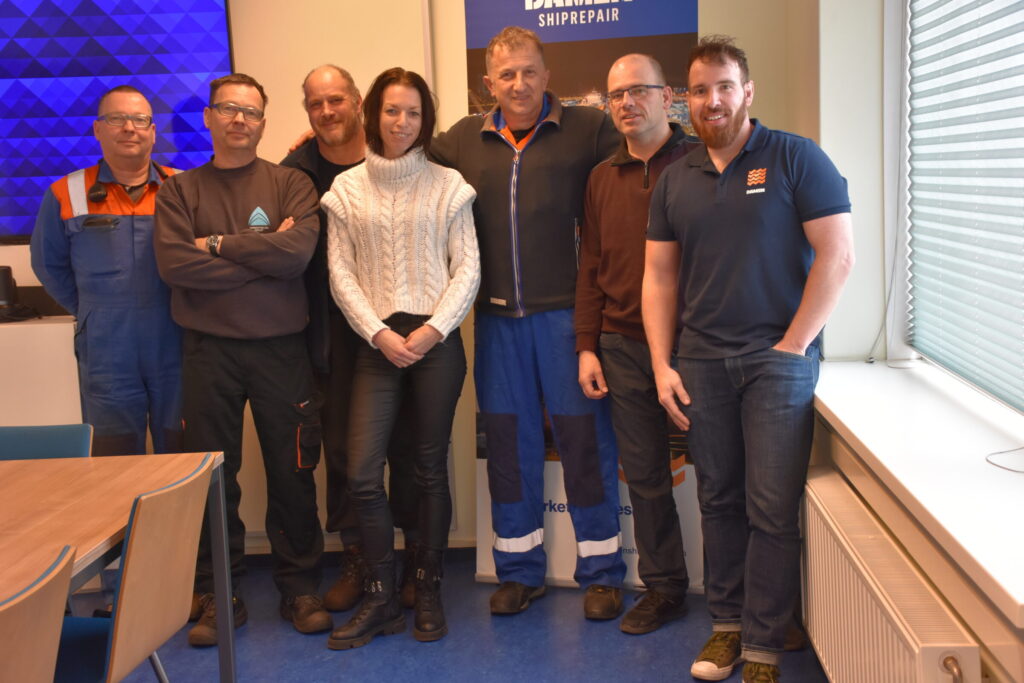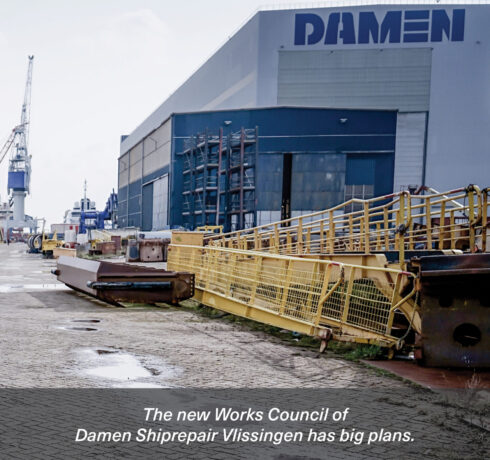The function of a company’s Works Council is to connect employees with management, thus creating lines of communication to identify and address any issues that need attention. For Djordje Kostic, Damen Shiprepair Vlissingen’s (DSV) recently elected Works Council chairman, this also means being “more proactive rather than reactive”.
Djordje has worked for Damen for more than 25 years. Currently, he works as a Production Coordinator at DSV and for the last seven years he has also been the secretary in the company’s Works Council. At the recent elections that took place earlier this year, however, he was elected to the position of Works Council chairman. It is a change in function for which he has ambitious plans. “Our aim is to take our activities up to the next level,” he says. “The previous Works Council was certainly acceptable – it is just that we want to move up a gear.”
DSV’s Works Council comprises seven people representing all of the company’s departments (there are about 118 people working at DSV). “Besides myself, we have a new member Eelco Wisse, who already has experience with Works Council work at a previous employer and Ilona Kreikamp who, like me, has also been a member of the Works Council for some time,” says Djordje. “There are also four new members – Erik Bongers, Rychard Bongers, Kevin Verkaik and Richard Traas – with no Works Council experience yet, but with a lot of good will to go for it!”
 The new Works Council (from left): Erik Bongers, Richard Bongers, Richard Traas, Ilona Kreikamp, Djordje Kostic, Eelco Wisse and Kevin Verkaik.
The new Works Council (from left): Erik Bongers, Richard Bongers, Richard Traas, Ilona Kreikamp, Djordje Kostic, Eelco Wisse and Kevin Verkaik.
They will start their tenure by taking a training course to sharpen their Works Council skills. “This course will be given by an external consultancy company which will tailor the course content specifically for us, based on motivational letters that each member wrote detailing their role and reasons for wanting to be a part of the Works Council,” adds Djordje.
Looking at the various issues that Works Councils typically discuss, there is one in particular about which Djordje is especially passionate. “We are living in a society where very few young people are coming into this technical sector. Therefore, as a company, DSV has to look for new technical employees to recruit. The Works Council can play an important role in this; we can give the management team tips about how to make our workspace and the technical roles attractive to young people. So, instead of the average young person wanting to fill shelves at Albert Heijn, they want to build ships.”
"In our discussions with the management team, we will try to make sure that everyone is heard so that we work together to work better.” Djordje Kostic
It is on this subject that Djordje wants the Works Council to be more proactive. “If I know that a colleague of mine is going to retire in four years time, then I need to find a replacement this year. This is because the technical skills for something like shipbuilding is not something that you can learn in a couple of months; it is a longer process.”
This labour market situation is, of course, not the only issue that the DSV Works Council has on its agenda. “Naturally, we will be discussing other subjects in the coming year,” says Djordje. “Practical issues such as standard working procedures, the importance of safety, internal discussions on employment conditions, conversations about work pressure and employee welfare, for example. In general, the people working here must feel like they can approach any member of the Works Council with any subject. And then, in our discussions with the management team, we will try to make sure that everyone is heard so that we work together to work better.”

